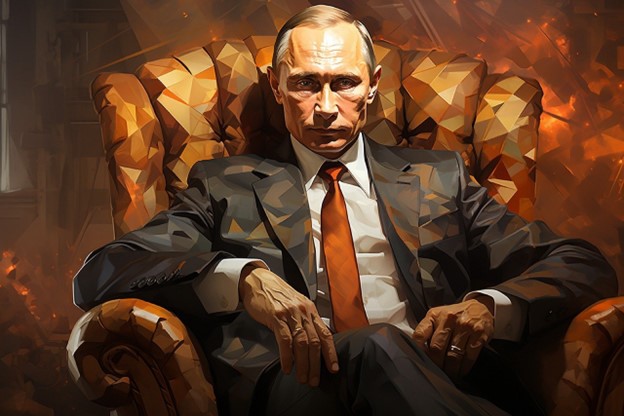Russia’s long war in Ukraine is dragging into the summer months without any indication that an end is in sight. It is not the only place Putin is actively engaged in a battle. The Russian president is using his ability to sway political events among the regional elites in Chechnya, with the goal of replacing the Ramzan Kadyrov regime with one that is more amenable to Moscow’s influence. Such a transition in power, according to a Jamestown Foundation report this week, “would carry with it a significant potential for instability as the sudden changes in leadership, underlying tensions, and power struggles could destabilize the region’s power dynamics.”
The Chechens have sent a number of fighters to the front lines in Ukraine in support of the Russian war effort. Putin owes these soldiers and their Chechen leaders a debt. His support of a power transition in Chechnya is likely due to the lessened leverage he has with Chechnya since the Ukraine war began in February 2022. Ramzan Kadyrov’s regime is showing signs it is weakening. Putin appears to view this as an opportune time to work toward installing a less independence-oriented leader in the region; one who is more complicit with Russia’s desire to eliminate Chechen pro-independence voices. It is yet another piece of the puzzle Putin needs to complete his long-term goal of reassembling the broader Russian Empire.
Political stability in the Chechen region is cemented through personal relationships and a signal to insiders of the state of affairs and infighting. A day after Daudov resigned from parliament he also resigned as president of the Alkhmat Grozny soccer club after serving for 14 years. His replacement is Ramzan Kadyrov’s son. Analysts in Washington view the change as a sign that the Kremlin is concerned about maintaining control in outlying areas that have a history of seeking greater autonomy. The Jamestown report also cites that when Daudov was appointed prime minister of Chechnya his predecessor was sent to Moscow as an aide to Russian Prime Minister Mikhail Mishustin.
In late April Novaya Gazeta-Evropa reported that Putin appointed Apti Alaudinov as the deputy head of the Main Military-Political Directorate of the Russian Armed Forces. Previously, he served as commander of a volunteer formation in Akhmat and in Chechen law enforcement. What is striking to Western analysts is that Aludinov has never served in the regular armed forces. Reports coming out of Chechnya speculate that Ramzan Kadyrov suffers from pancreatic necrosis and that the Kremlin may be touting Alaudinov as his replacement. It would be a stellar ascent for Alaudinov’s career.
Numerous members of the Kadyrov family have not only flooded government positions in Chechnya but have also become known for their feuds, according to the Jamestown report. It says that “According to sources in the Russian security services, however, the Russian government is not inclined to allow Kadyrov to perpetuate his rule by appointing either one of his sons or a close associate as the next governor of Chechnya. Instead, Moscow allegedly contemplates a significant overhaul of the system of governance in the region, which aims at rendering it more like other regions within the Russian Federation.”
The type of changes occurring in Chechnya are reminiscent of how other imperial powers have decreased the level of political autonomy for newly conquered lands. After the Second Chechen War “the Kadyrov clan was allowed an unprecedented level of political autonomy to use brutal force to suppress the remaining elements of the pro-independence movement,” according to the Jamestown report. Radio Free Europe is reporting that it appears Russian political strategists plan to absorb Chechnya back in Russia by curbing its leadership’s liberties.
Chechens who are unhappy with Kadyrov’s policies are likely to accept Moscow’s titular head. Ramzen Kadyrov met with Putin in Moscow in May and is expected to try to thwart the plan. “The Kremlin’s bet that the majority of Chechens are fed up with the monopoly on power enjoyed by the Kadyrov family in the region is not unreasonable. Nevertheless, it is difficult to determine how different actors will react to any abrupt changes in the region’s governance,” notes the Jamestown report.
Daria Novak served in the U.S. State Dept.
Illustration: Pixabay
